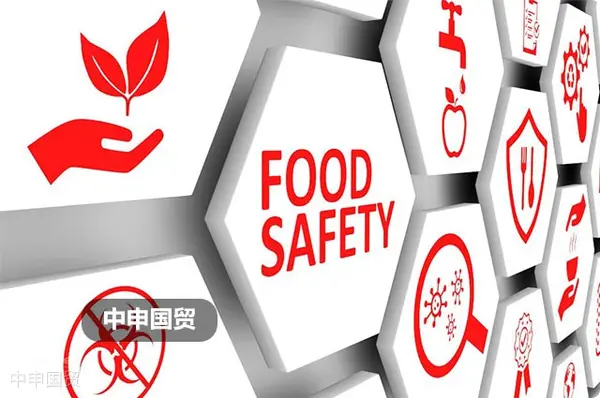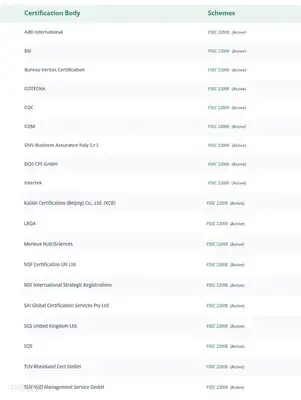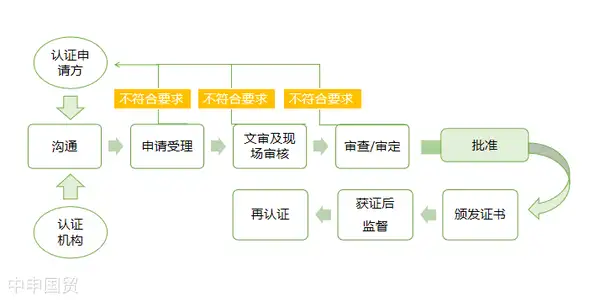- Shanghai Zhongshen International Trade Co., Ltd. - Two decades of trade agency expertise.
- Service Hotline: 139 1787 2118

The Origin and Development of ISO22000
Conditions for enterprises applying for food safety system certification:
FSSC 22000 Food Safety System Certification
FSSC 22000 Food Safety System Certification combines ISO22000, HACCP, CODEX, and GFSI additional requirements, serving as a global, auditable food safety management system standard. It provides a risk-based certification model applicable to multiple supply chain categories, aiming to deliver safe food, ingredients, and packaging for the consumer goods industry. Benefits of FSSC 22000 include enhanced food safety management capabilities, increased consumer confidence, improved compliance, strengthened organizational image, and heightened competitiveness. To obtain FSSC 22000 certification, enterprises must meet specific conditions, follow the certification process, and complete it within the prescribed timeframe.
List of FSSC22000 Certification Bodies

ISO 22000 is based on HACCP—Hazard Analysis Critical Control Point, a preventive food hygiene and safety control system designed to ensure food safety. HACCP originated in the 1960s, developed jointly by Pillsbury Company, NASA, and U.S. military laboratories. Over time, HACCP has evolved from a single management method to a complete management system. In 2005, the International Organization for Standardization (ISO) released the HACCP-based ISO 22000:2005 standard, which was revised in 2018 to issue ISO 22000:2018, providing more detailed guidance for ensuring food safety.
Legal Entity Qualification:
Enterprises must obtain legal entity status from national market regulatory authorities or other relevant agencies.Administrative License:
Enterprises must obtain all administrative licenses required by relevant regulations for their business operations.Management System Establishment:
Enterprises must have established and implemented a documented FSSC 22000 management system or other food safety management system according to certification requirements.Other Requirements:
Meet other relevant regulations and requirements for the certification application.Meet other relevant regulations and requirements for applying for the certification.
Food Safety System Certification Application Process:

Preliminary Research:Understand the basic situation of the enterprise and evaluate whether the existing food safety management system meets certification requirements.
Submission of Application:The enterprise formally submits an application to the certification body and provides all necessary documents and materials.
On-site Audit:Auditors from the certification body will conduct an on-site audit of the enterprise to verify the consistency between documents and actual operations.
Rectification and Re-audit:If issues are identified during the audit, the enterprise must rectify them within the specified time frame, and a re-audit may be required.
Certification Decision:Based on the results of the on-site audit and re-audit, the certification body will decide whether to grant certification.
Food Safety System Certification Timeline:
Research and Preparation:The time required from initial research to the first phase of the on-site audit depends on the specific circumstances of the enterprise.
On-site Audit and Feedback:The second phase, completing the on-site audit, may take several days to weeks depending on the scale and complexity of the enterprise.
Certificate Issuance:Once the enterprise passes the on-site audit and meets all certification requirements, the certification body will issue the certificate within 30 days.
Ongoing Supervision:After obtaining certification, the enterprise must undergo periodic surveillance audits to ensure continued compliance with certification requirements.
Related Recommendations
Category case
Contact Us
Email: service@sh-zhongshen.com
Related Recommendations
Contact via WeChat

? 2025. All Rights Reserved. Shanghai ICP No. 2023007705-2  PSB Record: Shanghai No.31011502009912
PSB Record: Shanghai No.31011502009912









